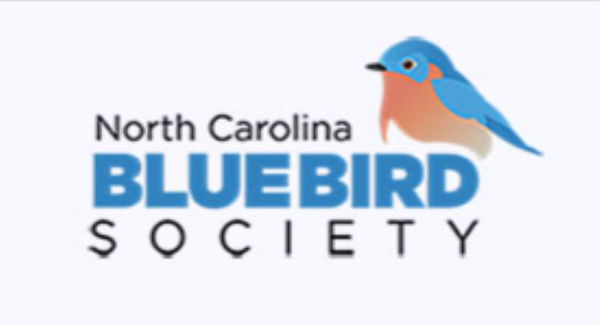Food for Bluebirds
WINTER PUDDING RECIPE
A great recipe for your Bluebird feeder for winter!
2 quarts water
1 cup margarine
4 cups grits (not instant)
1 cup peanut butter
raisins and peanut hearts (optional)
In a large saucepan, bring water and margarine to a boil. Slowly add grits, stirring and cooking until mixture begins to thicken. Remove from heat and add peanut butter, raisins and peanut hearts. Mix together well, then place in feeders. Freeze the balance in low plastic or foil containers for future use.
Photo submitted by Rudolf W. Grau of Charlotte, North Carolina
BLUEBIRD MEAL RECIPE
5 parts old-fashioned oatmeal
1 part corn syrup
1 part peanut butter
1 part bacon grease, melted suet, or lard
Mix well and smear into 1-inch holes drilled into a suspended log suet feeder. All birds like this recipe!
This recipe was retrieved and edited from Bluebird, Journal of the North American Bluebird Society (Vol. 21, No.1.)
Photo submitted by Theresa Korab of Apex, North Carolina
MARVEL MEAL RECIPE
1 cup peanut butter
1 cup vegetable shortening
melted beef suet or bacon drippings
4 cups yellow corn meal
1 cup white flour
Mix ingredients together to make a soft doughy mix. Can be offered in suet mesh bags, or rolled into balls and offered in an open dish.
This recipe was reprinted and edited from Bluebird, Journal of the North American Bluebird Society (Vol. 21, No.1.)
MIRACLE MEAL RECIPE
4 cups yellow cornmeal
1 cup all-purpose flour
1 cup lard, melted suet, or grease
1 teaspoon corn oil
sunflower hearts
peanut hearts
chopped soaked raisins
Melt lard. Stir in sunflower hearts, peanut hearts and raisins. Mix in corn oil, cornmeal, and flour. Let this set up and then cut into chunks. Serve in a suet feeder or in an open dish.
This recipe was reprinted and edited from Bluebird, Journal of the North American Bluebird Society (Vol. 21, No.1.)
WINTER FEEDING TIPS
Eastern Bluebirds are in the Thrush family, which are mainly insect eaters. During winter, when insects are scarce, bluebirds will eat berries & some seeds.
Favorites seeds & berries for Bluebirds include:
Dogwood
Holly
Juniper
Serviceberries
Sumac
Mountain Ash
Mistletoe
Firethorn
Poison Ivy
Multifloral Rose
Bradford Pear
You can collect some of these in early fall so that in late winter you can put them out in tray feeders for the bluebirds.
You can freeze Dogwood berries in a freezer at just below 32 degrees; mixed in sawdust. They will last 6 months. Also, they will keep in a refrigerator for a few months in the coldest part of the fridge. Spread them out and put a paper towel between the layers. This is a favorite! You can mix the berries with soaked raisins and currants. Soaking will plump up the raisins.
Homemade suet - It can help keep weight on the Bluebirds in winter. There is a good article at sialis.org Please check it out! Lots of info there and recipes.
Mealworms - You can put out mealworms in winter. They will eat them frozen. They are expensive to buy if your birds gobble them down. An occasional treat will be appreciated. You can propagate your own mealworms if you want. It is a bit of a process though. The dehydrated mealworms are not as palatable to the Blues but you could mix them with the live and they may start to eat them. Even though Blues are Thrushes, do not feed them earthworms, or any spiny or stinging insects as they can made them sick. Grasshoppers and crickets are something they like.
Seeds - Blues will eat some seeds. Sunflower chips, Safflower, hulled chopped peanuts, chopped pecans.
Do not feed nuts that are salted. Keep in mind that bluebirds do not have seed cracking beaks. So chop chop! This can be added to a cornmeal peanut butter suet, along with berries.
Water - Putting out water is important in winter. It is a bit of a chore but so worth it.
Clean!!! - Please keep feeders clean. Especially after rain and snow fall. Mold and bacteria can spread disease.
Enjoy seeing Blues in winter!!!
Evangeline LaMore, Songbird Rehabilitator / County Coordinator NC Bluebird Society Polk County
Content retrieved from an article published in the Winter 2022 edition of Bluebird Notes (page 13).






